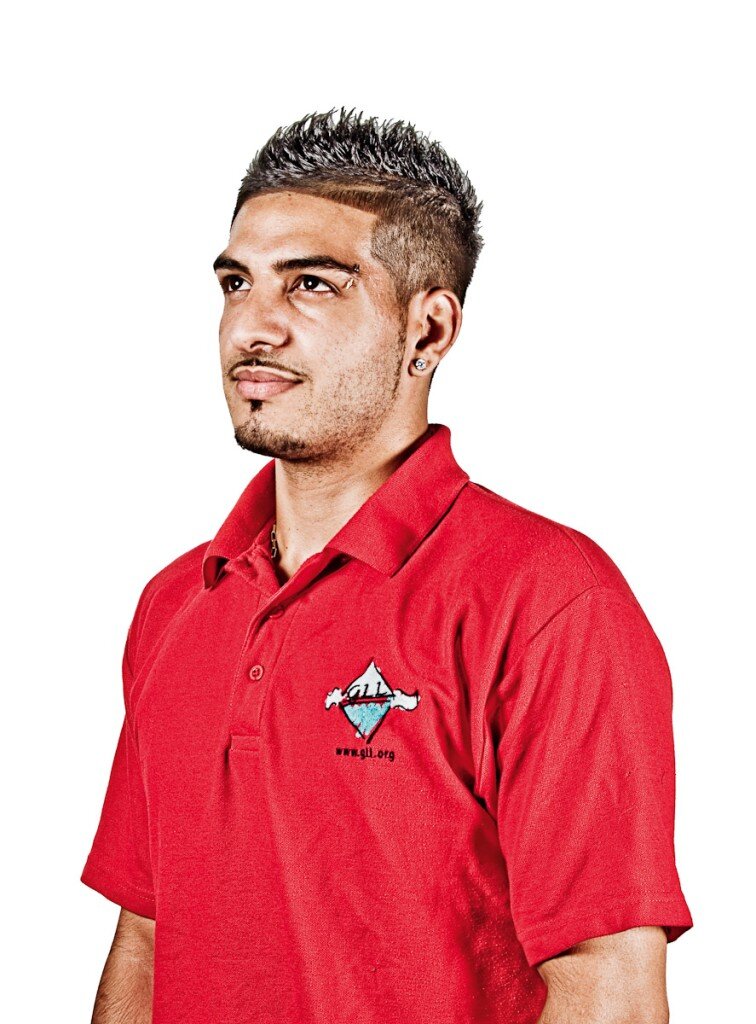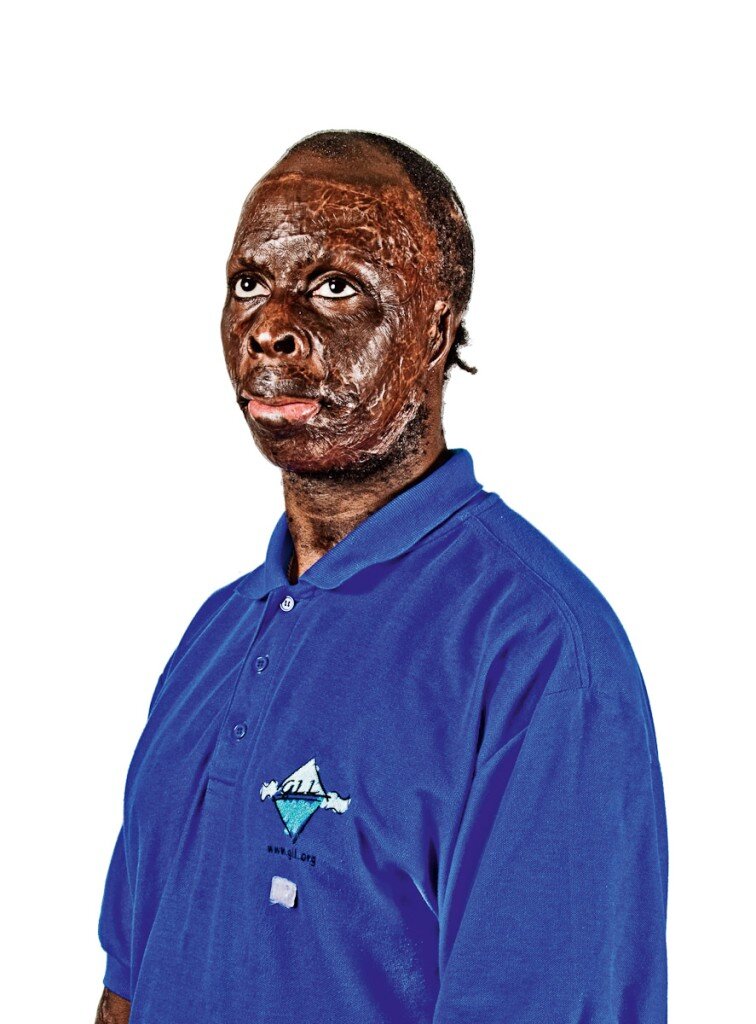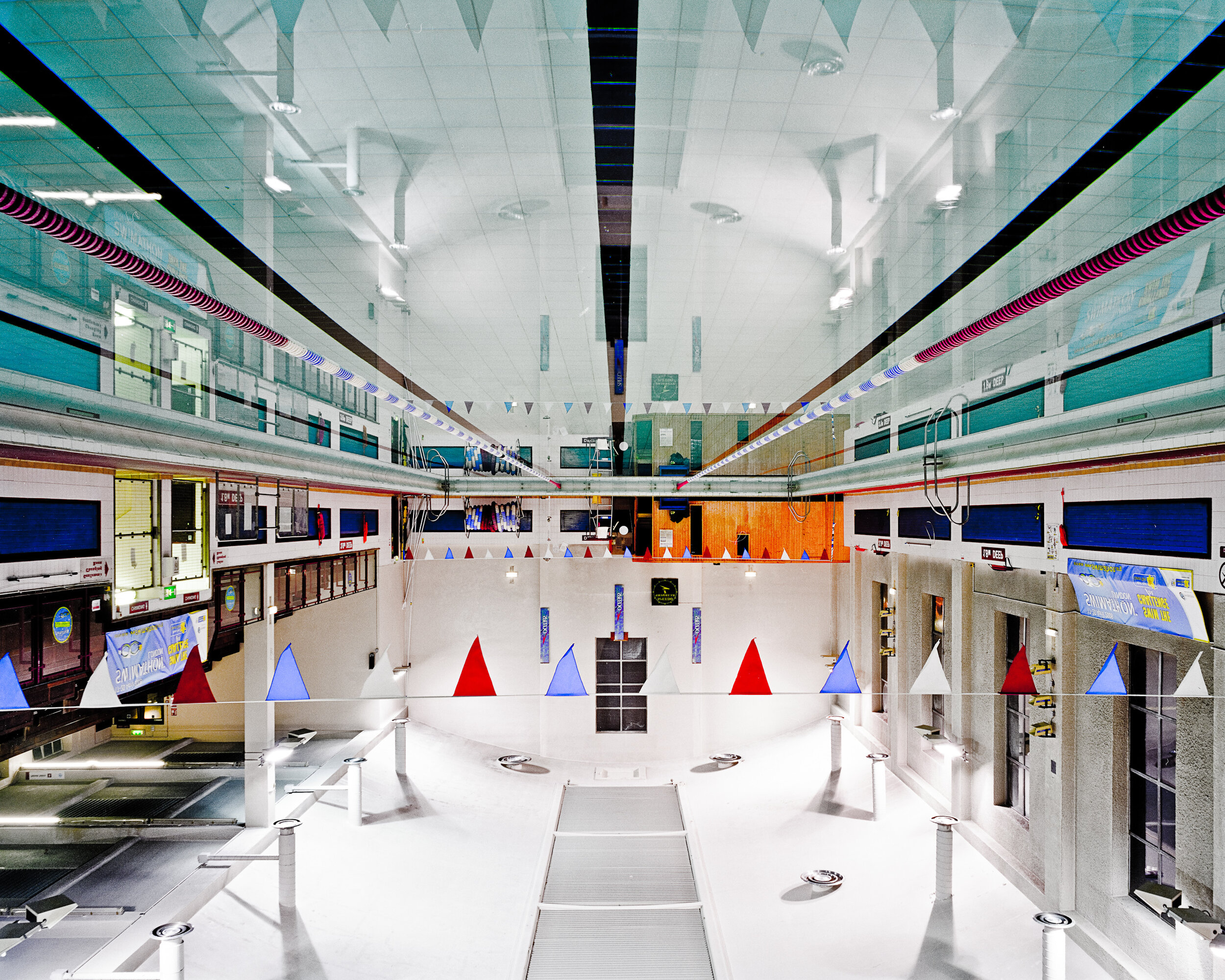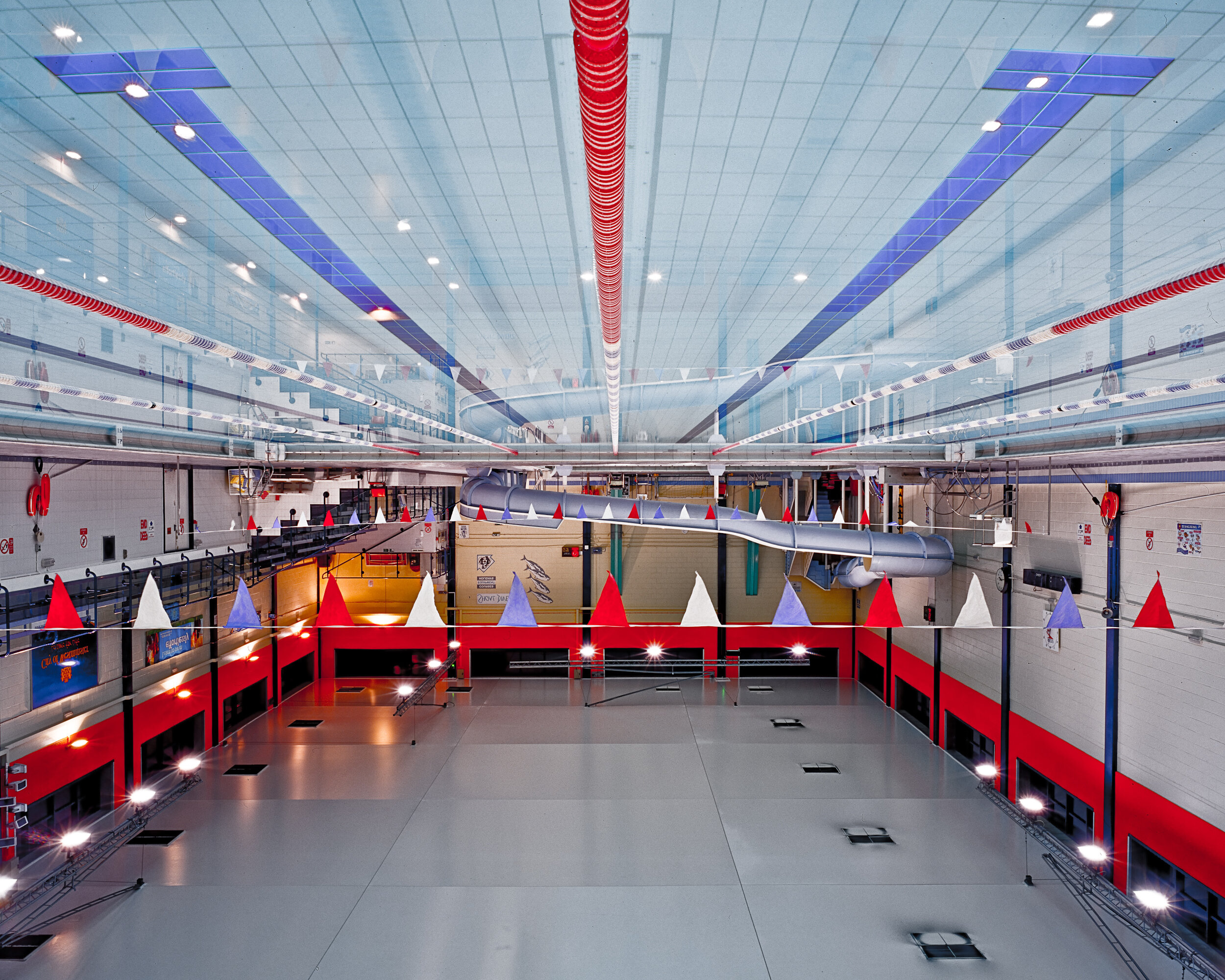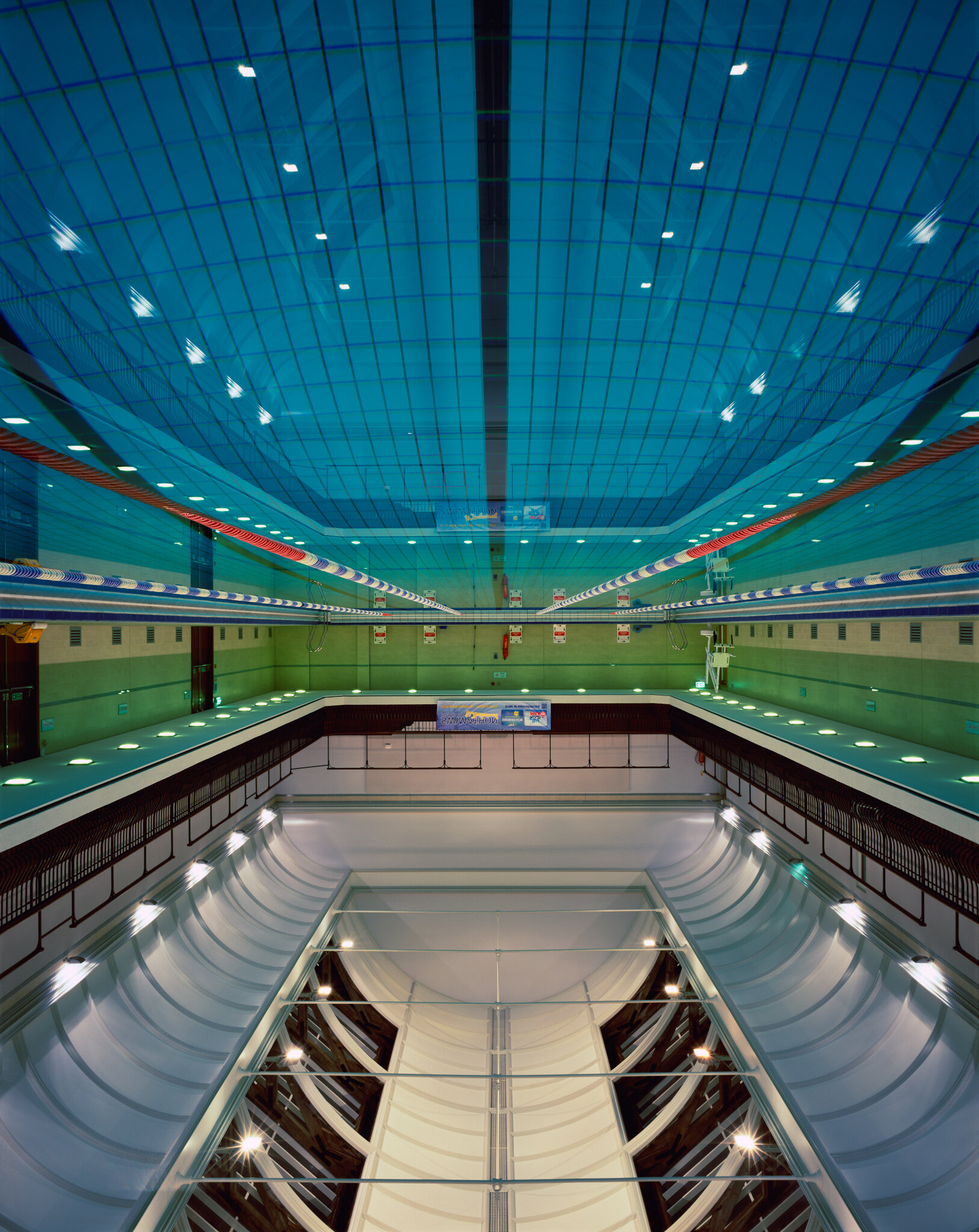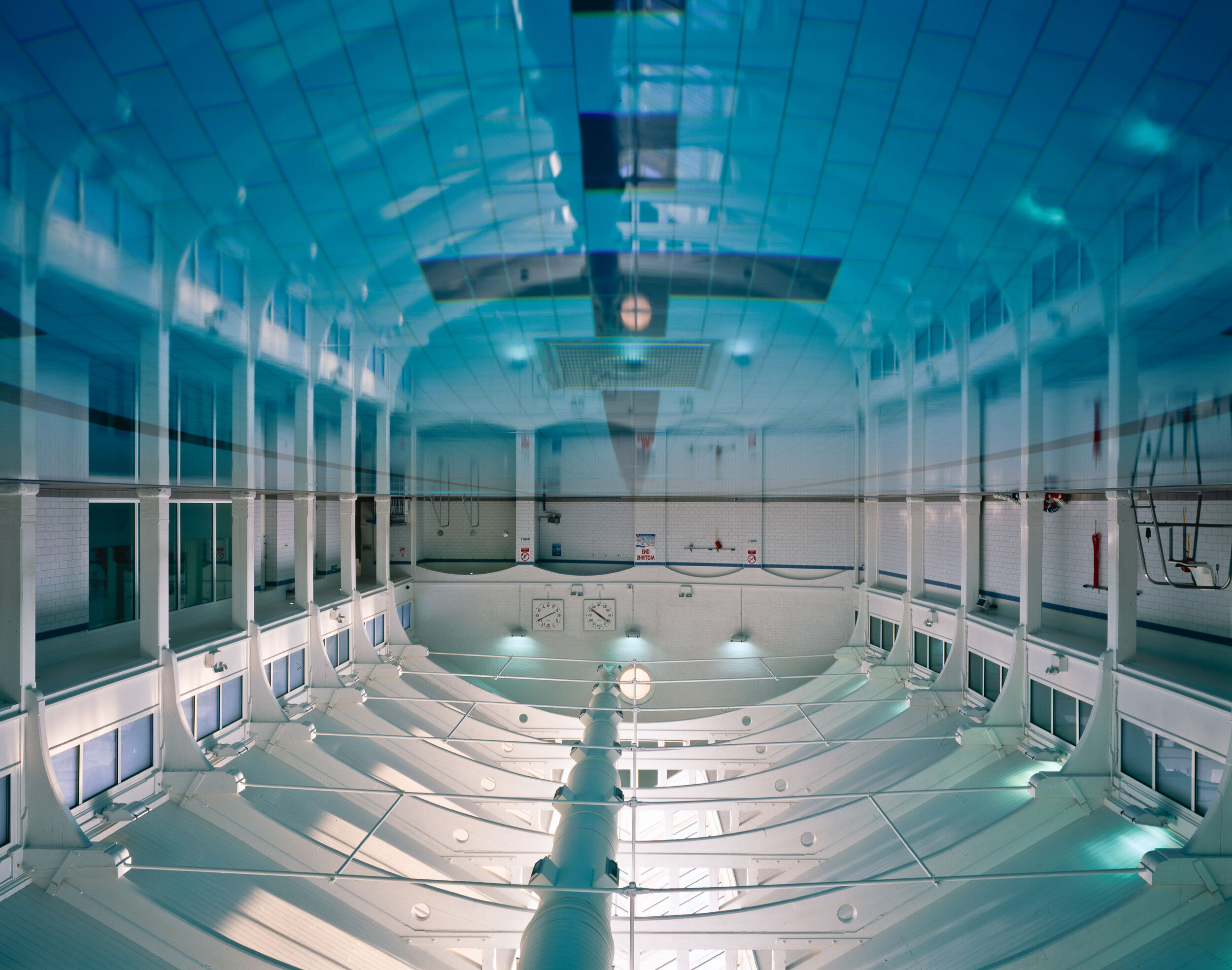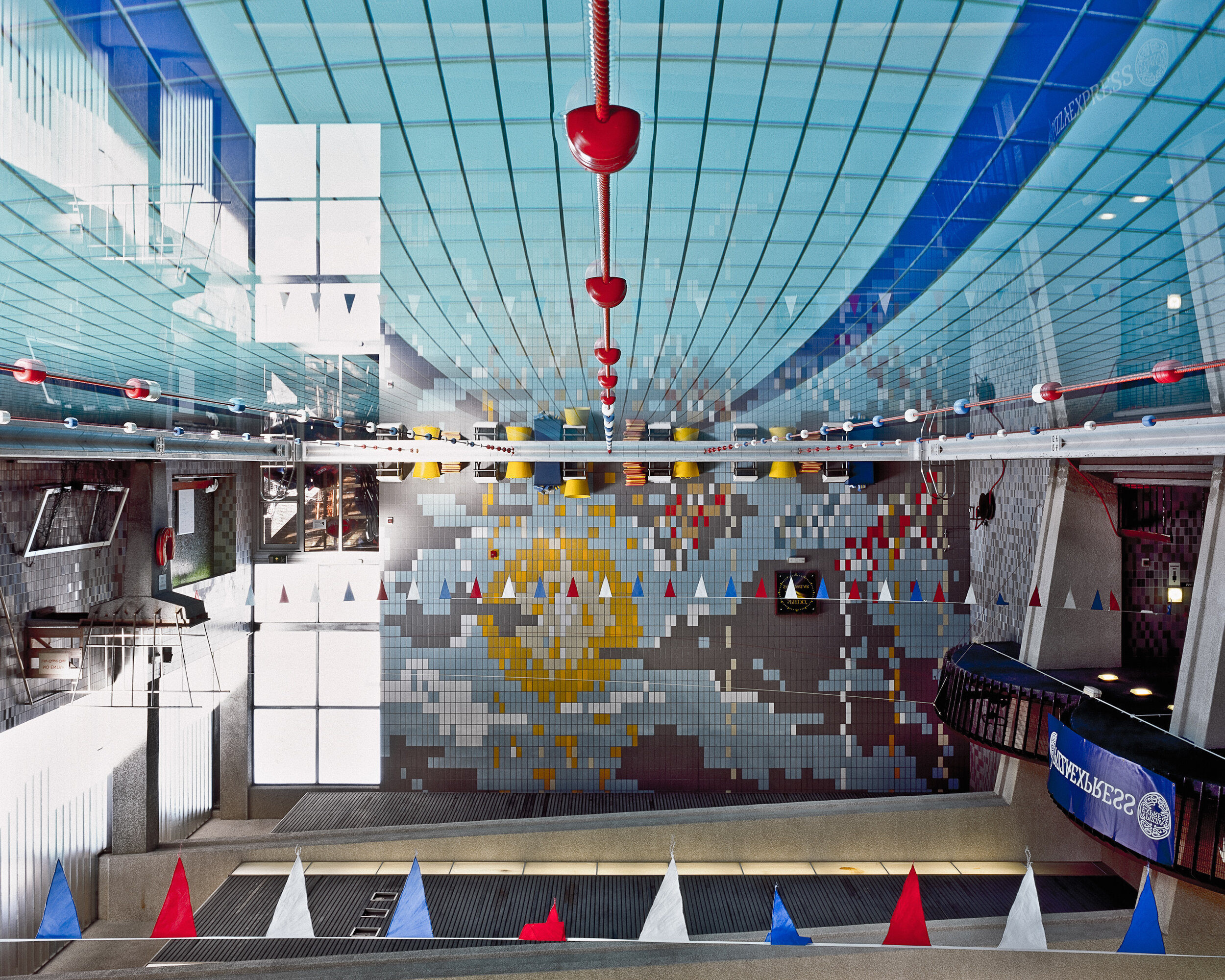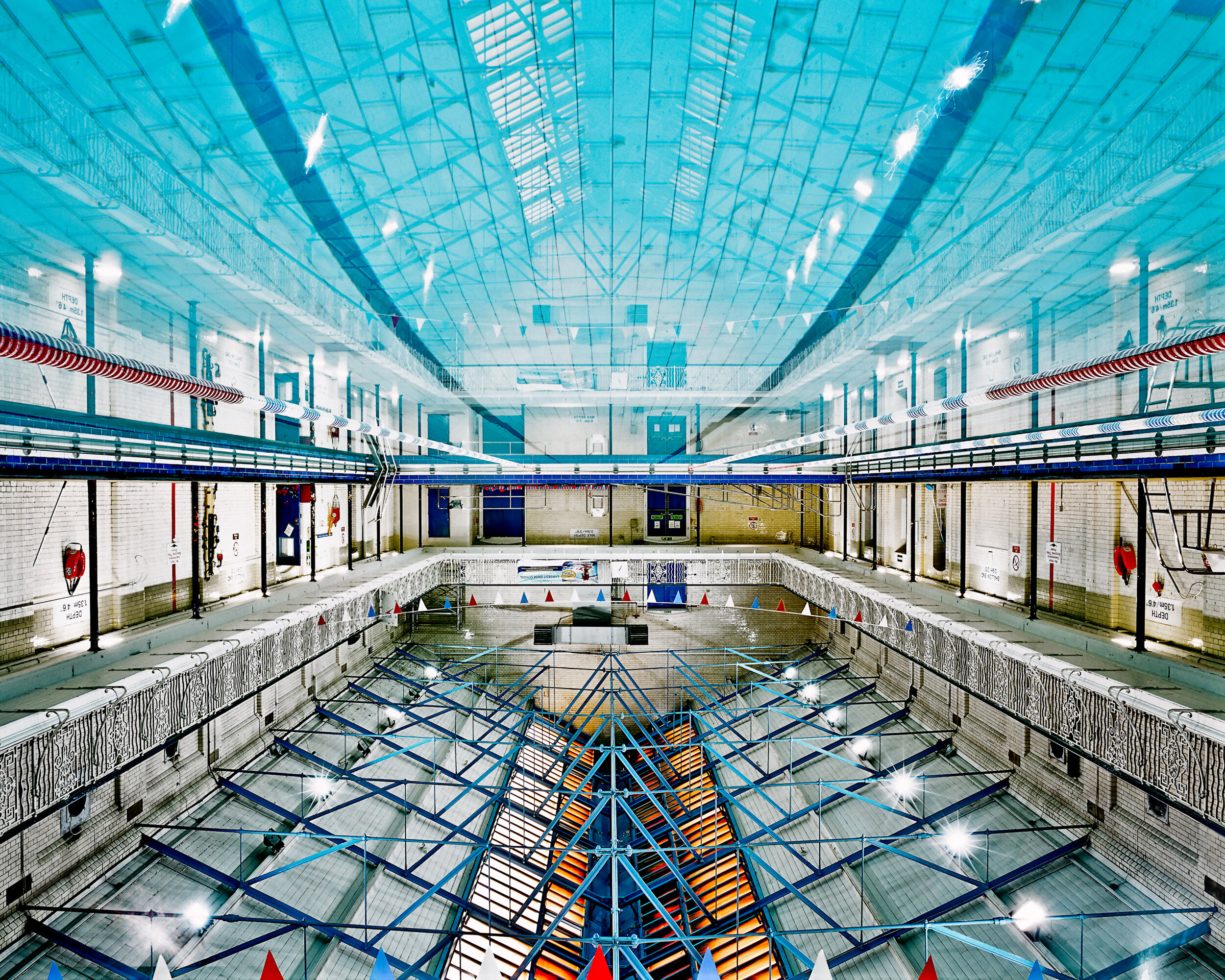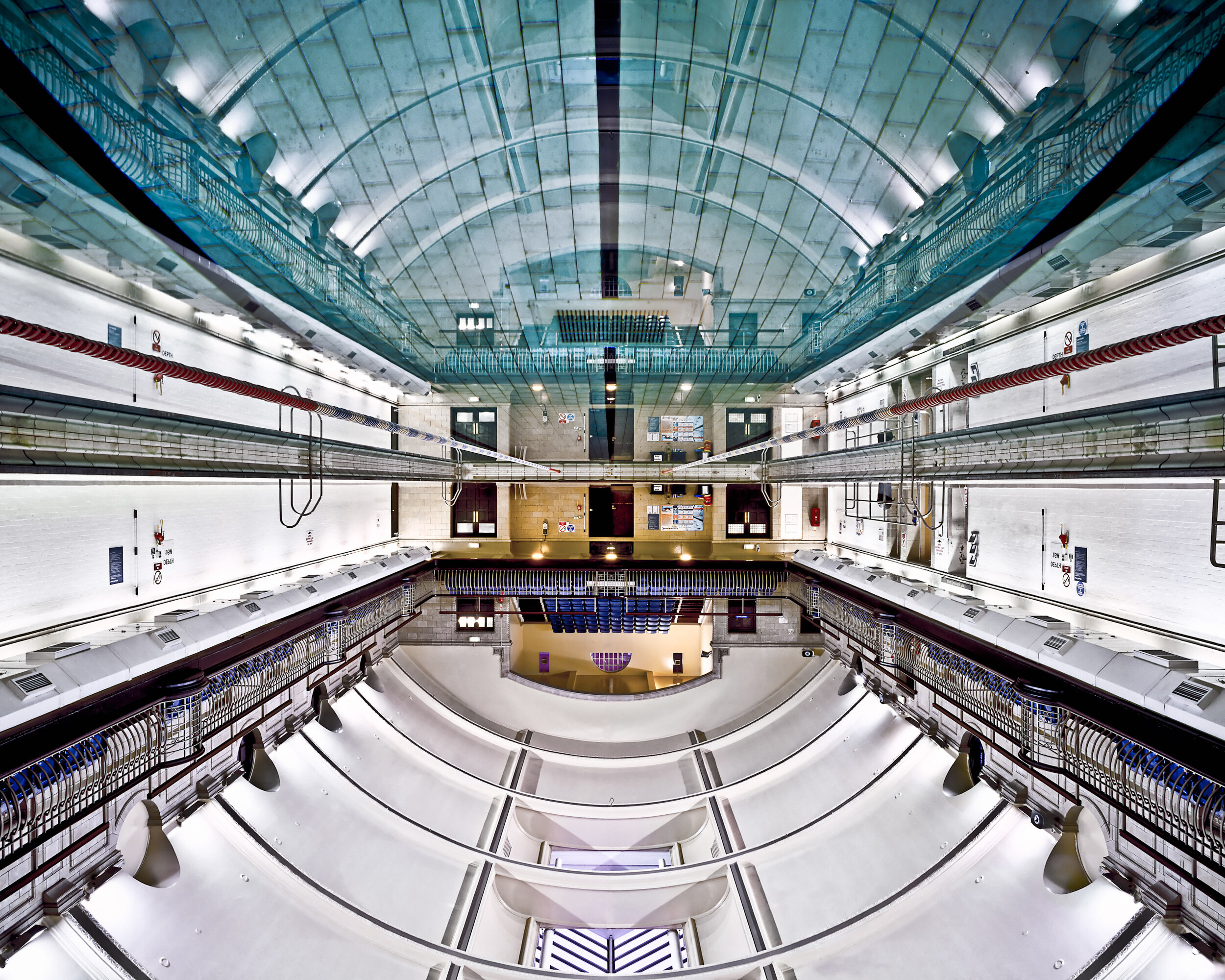“Each swimming pool, devoid of human presence, clearly depicts two distinct worlds: the actual, physical world of the pool, and the metaphorical, perfect world of the water’s reflection. ‘The mirror is after all a utopia, since it is a placeless place. In the mirror, I see myself there where I am not, in an unreal virtual space that opens up behind the surface; I am over there where I am not, a sort of shadow that gives my own visibility to myself, that enables me to see myself there where I am absent: such is the utopia of the mirror’ (Foucault, 1986: 24). This is explored within the titles themselves, which neatly separate into the two worlds the visual space inhabits: reality (the pool’s name) and the utopia (the trademarked motivational message).
Like typologists before him, Love gives ‘equal weight to… subject and… process’ (Slemmons, 1991: 44) and allows meaning to fall somewhere in between. It is not enough for him to merely photograph swimming pools; the methodology of the approach is just as important in the creation of meaning. By literally turning the world upside-down, he emphasizes the two worlds that are vying for space in his pictures: the utopia we strive for and the actuality of the lives we live. It is made impossible for us to dive into the perfect world of the reflection, but instead we are tempted by it as it hovers just out of reach above our heads. Of course, by doing this we are also held back from failure. If we could dive into the perfect reflection, our bodies would destroy it immediately. Instead all we can do is try to reach out to it and fail. The horizon line where these two worlds meet acts as a precipice between the reality of the viewer’s existence and the perfection they strive for. By inverting the image the viewer is in danger of losing grip of their utopia and falling into the mess of their own realities.”
Taken from: Photographic Utopias: The Typology of Jacob Love
by Damian Owen Board
“In 2009, Jacob Love presents a body of work that evokes through photographs and a video piece, spaces rarely experienced by their users in the way they are presented. Kings Hall Shallow/Emotional Freedom Technique® and Porchester Deep/What You Don’t Know You Don’t Know™ are images created from swimming pools empty of their swimmers. Their concreteness is brought to light through what is not usually experienced or shared. These photographs are populated by a perseverant multiplicity felt at various levels within these same spaces. If, at first instance, what is perceptible seems constrained by a sense of predictability, there is also present an inherent potentiality as a result of the space’s uniqueness, resulted from its own condition within these images. It is this intrinsic duality between predictability and potentiality that lends a sense of exquisiteness to Love’s work. When for example, the swimming pool environment contrasts with the quality of its reflection on the water; or when the management is seen as diametrically opposed to the experience of the worker, in terms of the relationship of power established within the space itself. If the direct gaze of the management may imply the predictable, then the evanescent reflection on the water and the diverted gaze of the worker will refer to a potential.
Evocation in Love’s work happens in these fragile moments of potentiality. The instant when the building itself is briefly reflected in the surface of the water, only to then change and blur away. Or when the worker stares beyond what is visible as an experience of the now and engages with what lies ahead, not just in terms of the physicality of the building but also in relation to hope and transcendence. To evoke is therefore, not related to the opening hours of the portrayed spaces, to their busy environments or even to the moment when one comes face-to-face with the one that stares (the worker). To evoke relates to the unseen or not stated visually; it refers to a positive openness.”
Taken from: Differentiation as Potential
By Carina Lopes
“In 2009, Jacob Love presents a body of work that evokes through photographs and a video piece, spaces rarely experienced by their users in the way they are presented. Kings Hall Shallow/Emotional Freedom Technique® and Porchester Deep/What You Don’t Know You Don’t Know™ are images created from swimming pools empty of their swimmers. Their concreteness is brought to light through what is not usually experienced or shared. These photographs are populated by a perseverant multiplicity felt at various levels within these same spaces. If, at first instance, what is perceptible seems constrained by a sense of predictability, there is also present an inherent potentiality as a result of the space’s uniqueness, resulted from its own condition within these images. It is this intrinsic duality between predictability and potentiality that lends a sense of exquisiteness to Love’s work. When for example, the swimming pool environment contrasts with the quality of its reflection on the water; or when the management is seen as diametrically opposed to the experience of the worker, in terms of the relationship of power established within the space itself. If the direct gaze of the management may imply the predictable, then the evanescent reflection on the water and the diverted gaze of the worker will refer to a potential.
Evocation in Love’s work happens in these fragile moments of potentiality. The instant when the building itself is briefly reflected in the surface of the water, only to then change and blur away. Or when the worker stares beyond what is visible as an experience of the now and engages with what lies ahead, not just in terms of the physicality of the building but also in relation to hope and transcendence. To evoke is therefore, not related to the opening hours of the portrayed spaces, to their busy environments or even to the moment when one comes face-to-face with the one that stares (the worker). To evoke relates to the unseen or not stated visually; it refers to a positive openness.”
Taken from: Differentiation as Potential
By Carina Lopes
LINE OF FLIGHT

